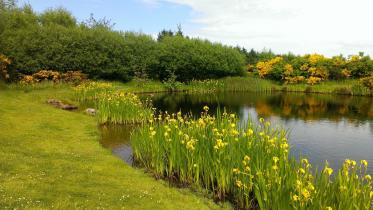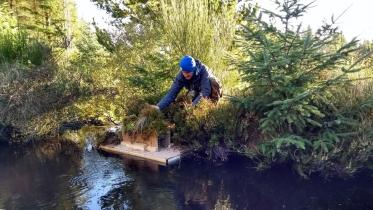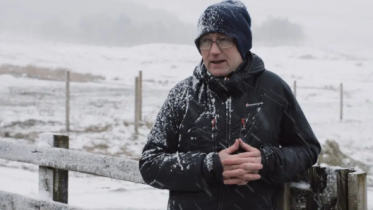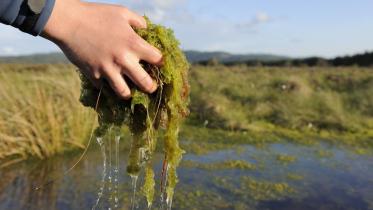Suspension of Ringing, Research and Monitoring in areas of HPAI in Scotland Decision Making Framework 2023
Published: May 2023
Suspension of Ringing, Research and Monitoring in areas of HPAI in Scotland Decision Making Framework 2023
The purpose of this document is to provide a framework to determine if ringing and research activities that have otherwise been suspended during a highly pathogenic avian influenza (HPAI) outbreak may be permitted to continue because of their high scientific importance.
Any decision to suspend ringing or other research activities will be taken by the Statutory Nature Conservation Bodies (SNCBs) in consultation with the British Trust for Ornithology (BTO) who administer the ringing scheme, the Joint Nature Conservation Committee (JNCC), the Royal Society for the Protection of Birds (RSPB) and other interested parties at the regular fortnightly meetings that are taking place during the HPAI outbreak. Any such recommendation will be made with a view to limiting any additional harm that the activity might do to a population or species that is, or could be, impacted by HPAI. The decision to recommend a suspension will be made in the light of best information available relating to the severity and geographical spread of the outbreak and the best estimate of the current risk to the different taxonomic groups identified by the BTO in their advice to ringers on operating during the HPAI outbreak.
The recommendation will require ratification by SNCB senior managers at the regular meetings chaired by JNCC.
This framework will be used to assess whether, because of their high conservation or scientific value, particular activities should be exempt from any such suspension or other restrictions placed on ringing and research activities by NatureScot.
The Framework will assess any additional risk to birds that the activity might generate (e.g. introducing HPAI to a colony where it is absent, increasing the chance of HPAI transmission from bird to bird or stressing birds to the point that they succumb to HPAI when they might otherwise have survived). The judgement about the level of risk arising from the activity will be made on the assumption that any risk mitigation detailed in the research proposal will be carried out, and that all risk mitigation processes detailed in BTOs advice to ringers is also fully implemented. In addition to this, further risk mitigation may be required by land managers in relation to operating on particular sites (e.g. islands supporting seabird breeding colonies). Again, the assumption made for the purposes of this assessment is that all of these requirements will be adhered to.
The scientific importance of the work being undertaken will also be assessed. Examples of important work might be long term datasets that follow population trends, regular sampling that allow estimates of productivity or adult or juvenile survival or studies directly related to the understanding and management of the HPAI outbreak.
Those who are planning projects that require a large amount of logistical planning or significant cash outlay in advance might wish to submit project details in order to get an indication of whether a project is likely to be exempted before they commit to booking travel, accommodation etc. Note, however, that the future severity of the outbreak is unknown and, were it to become very severe, even the most valuable projects might need to be suspended. NatureScot will not provide financial or other compensation in the event that projects need to be suspended, even if an indication was previously given that the project was likely to be exempt. In the event of a disputed outcome, NatureScot may seek further advice from independent advisors. As the responsible body for issuing licences for ringing and research in Scotland, NatureScot’s decision is final.
The HPAI Decision Proforma 2023 and Flowchart are available to download below. Request NatureScot to review project using HPAI Assessment proforma by contacting [email protected]





